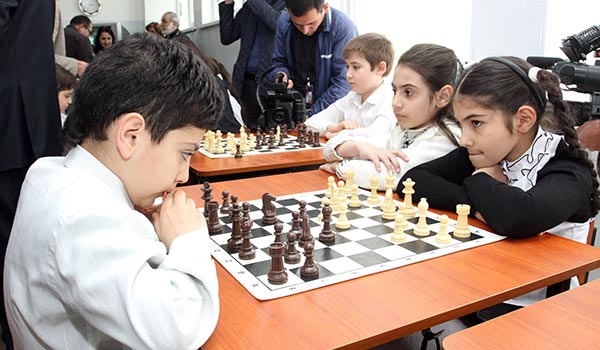Most of us would agree unanimously on the fact that the sole purpose of education is to make us better human beings from an intellectual level. It should teach us skills that help us think better, have clarity of our visions and goals, come up with precise action plans, be empathetic and most importantly handle both failures and success equally. While our current education system does that, there are a few places that have gone an extra mile in helping kids inculcate crucial life skills.
Armenia, for instance, is one of the first countries in the world to have made chess as a compulsory subject in schools. The decision was taken in 2011 and has been ever since producing chess wizards and grandmasters, who not just go onto become global sensations but silently lead a balanced and successful life as well. Making chess compulsory in schools means that kids have to study and practice the game like any other subject (math or science) and constantly work on getting better at it. This move not only helps them develop new skills right at a very young age but complement their academic pursuits and life outside school as well.
There are number of experiences and reports from parents, who claim to have witnessed differences in their kids after a few weeks of chess training. They share that chess works at both intellectual and psychological levels, where it alters the habit pattern of the brain to react to things and circumstances in life. Reduced tantrums, increased patience and perseverance, logical thinking, critical analysis, opponent behavior analysis, anticipating actions, ready responses, situation assessment and more have been evolving as skills amongst kids who were exposed to frequent games of chess.
At the time of the implementation of the decision, the then Armenian education minister, Mr. Armen Ashotyam shared that the introduction of chess was not only meant to nurture young and fresh talents but also help make the society a better place to live in.
In his own words, “Chess develops various skills - leadership capacities, decision-making, strategic planning, logical thinking and responsibility," Ashotyan said. "We are building these traits in our youngsters. The future of the world depends on such creative leaders who have the capacity to make the right decisions, as well as the character to take responsibility for wrong decisions."
True to the intention, schools in Armenia have also reported that kids became more confident in their academics with practice in chess and think better as well. Armenia has a legacy of grandmasters and chess players and on an average sunny day, you can find parks in the country filled with chess enthusiasts fighting it out on boards to hone their skills.
So far, Armenia has produced over 30 grandmasters and has emerged successful in multiple chess Olympiads and federation rankings. Though chess finds an important space in countries like the UK, India, Cuba, Russia and more, it has not been mandated as a unified learning program across schools. Nevertheless, chess is an excellent afterschool program that works on multiple aspects of your brain and its activities.
If you intend to enroll your kid to a chess program and make his or life better, get in touch with us and book a free class. As you saw, life would never be the same after a few wins and losses, on the board!


